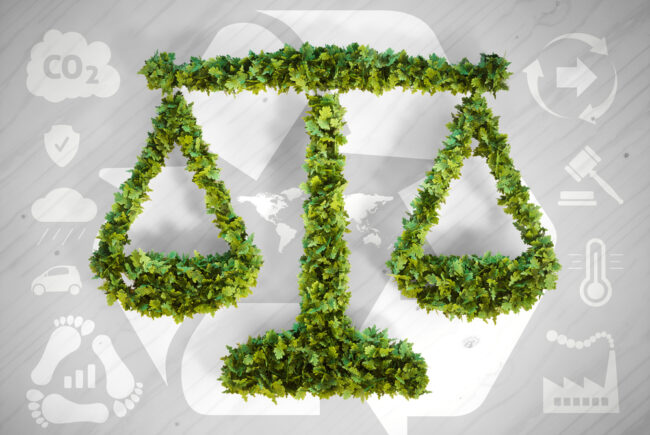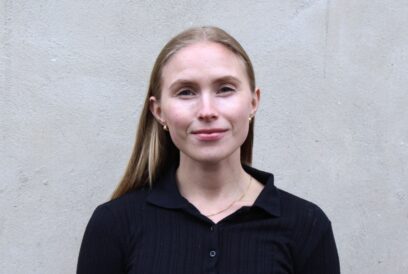

One of the most important ways that an individual can exert their influence is by voting in elections. Image: Shutterstock
One of the most important ways that an individual can exert their influence is by voting in elections. Image: Shutterstock
Climate change can be influenced on many different levels: through personal choices, national legislation and international agreements.
How will climate policy be made in the coming years, and how can it be influenced? Mitigating climate change requires action on four levels: globally, at EU level, nationally and in the everyday life.
1. The most important decisions are made globally
Because climate change is a global issue affecting the whole of mankind, the key guidelines concerning it are also drawn up internationally, in practice at UN climate conventions.
The common guidelines have been negotiated time and again. The attention of the general public was drawn to climate change by the UN Conference on Environment and Development held in Rio de Janeiro in 1992, the so-called Rio Earth Summit. At that summit, the first internationally binding Climate Change Convention was concluded, which was then supplemented by the Kyoto Protocol that entered into force in 2005.
At present, the most important document concerning climate change is the Paris Agreement, which was concluded in 2015 and came into effect in 2016. Its goal is to keep the rise of the average global temperature clearly below 2°C and preferably at 1.5°C in relation to the pre-industrial era.
Consequences of climate change will be considerably more serious if average global temperatures rise by 2°C rather than 1.5°C.
“The significance of Paris Agreement is that, as a result of a decade of work, we concluded an agreement which has the elements to take us towards net zero emissions. It is as peremptory and binding as was possible after years of negotiations, keeping all the countries of the world on board at the same time,” says Jan Wahlberg, Finland’s Climate Ambassador.
Net zero means a situation in which carbon sinks (the amount of carbon absorbed) are equal to emissions.
However, not all countries are committed to the agreement any more as the United States, under the leadership of Donald Trump, announced that it was withdrawing from the agreement in November 2019. However, the new President-elect Joe Biden has pledged to rejoin the Paris agreement on the first day of his presidency.
The parties to the agreement determine their own emissions reduction targets and are responsible for their own policy actions to reach them, ensuring, however, that emissions reduction goals for the years 2030 and 2050 are agreed. The agreement does not include actual sanctions.
The current year of 2020 is fundamental in terms of commitment to the agreement. By the end of this year, each party to the Paris Agreement must give its climate-related pledges or NDCs (Nationally Determined Contributions). In practice, each country must say by how much it will reduce its emissions by 2030 compared to the level of 1990 or what kind of adaptation plans it has.
“The Paris Agreement has committed us to this process. Everyone is in a way forced to negotiate,” says Wahlberg.
Another important international body in terms of the fight against climate change is the Intergovernmental Panel on Climate Change (IPCC). The panel is tasked with compiling research data on climate change from around the globe. Its reports are generally referred to as a starting point for policy.
In 1990, the IPCC’s first assessment report was officially approved. According to this report, the world’s average temperature would rise by 1°C between 1990 and 2005, and by 3°C by the end of the century if climate change is not mitigated. In practice, the first part of this prediction has already come to pass.
The panel’s latest report was published in October 2018. It emphasises that the consequences of climate change will be considerably more serious if average global temperatures rise by 2°C rather than 1.5°C.
3. EU guiding the climate actions of its member states
EU member nations’ climate policy is above all influenced by the laws and agreements of the EU area. For example, the EU is giving its climate pledge (NDC) for the entire common EU area.
“If we want to influence the European commitment to reducing emissions by 2030, we should lobby within Europe,” says Wahlberg.
In practice, for example, Finland is currently lobbying for emissions reduction targets that are as ambitious as possible. During Finland’s term of EU presidency in 2019, the EU issued its long-term climate pledge: it intends to be the first climate-neutral continent by 2050.
With regard to 2030, the EU previously reported that it was aiming for an emissions reduction of 40%, but this year the commission made a proposal that was more stringent than this target, at 55%. In October 2020, the European Parliament also took a stand on the issue: after a very close vote, it ended up by recommending an increased target of 60%. In December EU leaders at the end agreed on to set a target to cut greenhouse gas emissions by 55% compared to 1990 levels by 2030.
The EU’s climate actions can be examined more broadly by finding out about its green development programme, the European Green Deal. Its objective is to reduce the EU’s emissions, and transition to a sustainable green economy in the 10 different policy areas of the programme.
“The programme is based on the premise that we can have economic growth even while heading towards carbon neutrality,” explains Wahlberg.
In practice, the programme will mean many new legislative EU projects in the coming years. One of the goals of European climate law is to make emissions reduction targets legally binding.
3. Carbon-neutral nations – what role will national policy play?
The EU’s common climate policy therefore guides and binds member nations. Finland, for instance, can, however, agree nationally on measures by which the targets set by the EU can be implemented in practice.
Prime minister Sanna Marin’s government has its own climate goals. These include the aim of Finland achieving carbon neutrality by as early as 2035.
The current hot issue of domestic climate policy is next year’s reform of the Climate Change Act, which will aim to steer towards this target by legislative means. The 2050 target will also be updated and emissions reduction targets for the years 2030 and 2040 will be added to the act.
The plan is to make the government bill into a reformed Climate Change Act during 2021.
4. Individual actions also matter
The purpose of the new Climate Change Act is to enshrine the goals into law so that they will be binding throughout the terms of office of different governments. Sooner or later, governments do change and, as a result of a new government programme, changes may be made to national climate change measures.
One of the most important ways, therefore, that an individual can exert their influence is by voting in elections. Political parties usually state their climate policies in their pre-election manifestos.
Some of the responsibility also inevitably rests with citizens themselves. For example, it matters what each one of us eats and purchases, how we move around, what kind of energy we use and what kind of companies’ products or services we consume. Making our own choices more environmentally friendly can be supported, for example, by signing climate pledges online. Citizens can commit to for example, halving their own carbon footprint within 10 years.
If we use the coronavirus financial support to revive the fossil-fuel society, the younger generations will be left to pay for this in many ways.
If you want to influence the decision-making in your country in between elections, it is worth, for example, taking part in demonstrations or getting involved in civic organisations.
“People who demonstrate and work in organisations do get heard. The previous parliamentary elections were the ‘climate elections’, and now politicians must keep their promises. It is already evident that politicians are beginning to compete for popularity among the young,” says Wahlberg.
Now could be a good time to remind decision-makers of their responsibility to ensure that the enormous coronavirus financial support packages are used sustainably in terms of the climate.
“Asking decision-makers, i.e. people of my generation, whether they understand what they are deciding and what they are responsible for, is important. If we use the coronavirus financial support to revive the fossil-fuel society, the younger generations will be left to pay for this in many ways, because we will also be taking on more government debt. If dialogue is established through this, you have done something meaningful.”
Emilia Runeberg, a climate expert at Fingo (Finnish Development NGOs), was also interviewed for this article.
This article was produced in a project aiming to increase the debate on EU climate policy and the understanding of climate change and different aspects of eco-education. Project was coordinated by KVS (producer of Elm) and funded by Europe Information. The article was first published in Finnish on the project page.
Author







